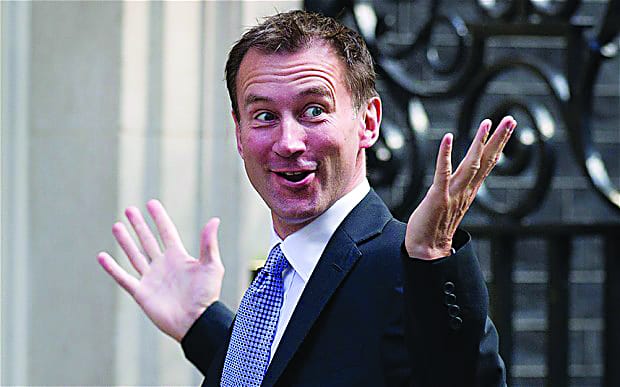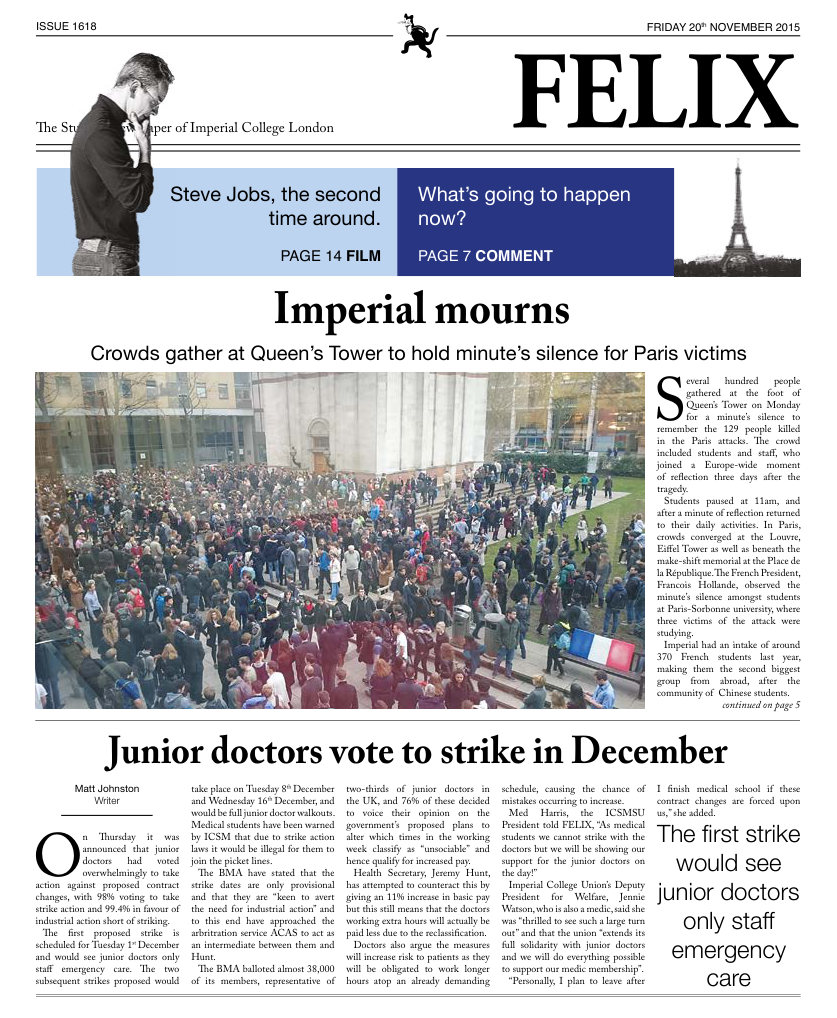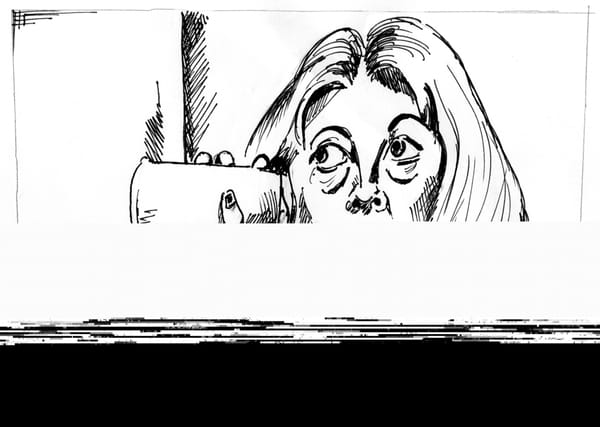This is everyone’s fight
Jeremy Hunt’s plans for junior doctor contracts will affect the care you receive

I’m aware that the media and Facebook may have recently reached saturation with heartfelt pleas for help from the medic community. I have undoubtedly littered friends’ timelines with tearjerking videos, angry statistic-riddled rants and protest photos. However, Jeremy Hunt still refuses to listen and I believe you, the voting public and NHS patients, deserve to know what’s happening. I hope you might even join the debate.
There are many ways in which the new contracts will be damaging to doctors’ personal lives and bank accounts, but I’m writing today to tell you the most important part: it will affect the care you receive as an NHS patient. Currently, trusts are penalised financially for giving doctors rotas that include an excessive number of ‘antisocial’ hours. Consequently, doctors retain some circadian rhythm and, generally, are able to care for their mental and physical health as any professional would expect to do.
Under Jeremy Hunt’s proposals, these penalties will be removed. Instead of this proactive, financial incentive for NHS Trusts to ensure safe working hours, Jeremy would rather that our rotas are sporadically monitored by the Care Quality Commission or that juniors themselves become the whistleblowers. This means that any unsafe rotas would only be picked up retrospectively, and hence dangerous mistakes may have already been made. Although assurances have been made by NHS employers that the working hours will not be extreme, rotas released on their own website show the opposite, with isolated night shifts in the middle of plenty of 13-hour days.
So, what is the justification for this? Jeremy has masterfully misrepresented evidence published in the BMJ, claiming that patients are more likely to die if admitted at the weekend because there are less staff working on Saturdays and Sundays – and hence, junior doctors apparently need to take on more hours, and more antisocial hours, within the pay envelope. However, there was merely a statistical excess of deaths at the weekend – the authors themselves admitted it would be “rash and misleading” to assume that these are avoidable deaths.
There is a lot more to say on this topic, and I would welcome any Imperial students who would like to know more to peruse the BMA’s website, or contact me for more information. We want to give you the best care we can, and that requires us to have a safe, fair contract.








